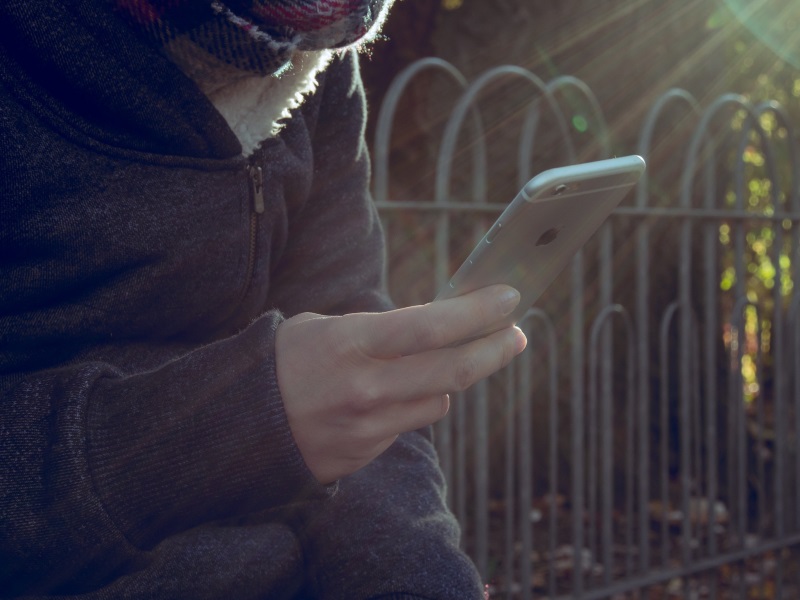- Home
- Internet
- Internet News
- Saudi Scholar Issues Fatwa Against Stealing Someone Else's Wi Fi
Saudi Scholar Issues Fatwa Against Stealing Someone Else's Wi-Fi

"Taking advantage of the Wi-Fi service illegally or without the knowledge of other beneficiaries or providers is not allowed," said Ali Al Hakami, a member of the high scholars' commission, a senior religious body which advises the Saudi king. "Any provider or user who pays money for the Wi-Fi service should be consulted before using it. When the Wi-Fi service is open such as in parks, malls, cafeterias, hotels and government departments, then there is no problem since it is meant to be used by the people or clients."
The rather banal ruling follows a similar edict in April from Dubai's Islamic Affairs and Charitable Activities Department, which responded to a question submitted online regarding the use of a neighbor's Internet. "There is nothing wrong in using the line if your neighbors allow you to do so, but if they'd don't allow you, you may not use it," it ordered.
That a conservative Islamic jurist would weigh in on such an amusingly uncontroversial matter shouldn't be such a such a surprise. Fatwas get issued on all and sundry things. Sometimes, they can be quite harmless, such as when a religious watchdog in the United Arab Emirates banned traveling to Mars. In other instances, they reflect patriarchal, conservative norms or even outright misogyny: In Indonesia, clerics issued a fatwa against certain emoticons that could be seen as LGBT-friendly; the Islamic State, during the early stages of its insurgency in Syria, declared that women should not be allowed to sit in chairs.
The Wi-Fi fatwa is far less provocative, although the need for it confused some commentators. Why not just encourage people to put passwords on their private Internet?
"We do not need a religious edict to pinpoint such basic things," a Saudi blogger noted, according to the Gulf Times. "Private property should remain private, especially [since] the owner paid money for the services. Nobody should just take advantage."
© 2016 The Washington Post
For the latest tech news and reviews, follow Gadgets 360 on X, Facebook, WhatsApp, Threads and Google News. For the latest videos on gadgets and tech, subscribe to our YouTube channel. If you want to know everything about top influencers, follow our in-house Who'sThat360 on Instagram and YouTube.
Related Stories
- Galaxy S24 Series
- MWC 2024
- Apple Vision Pro
- Oneplus 12
- iPhone 14
- Apple iPhone 15
- OnePlus Nord CE 3 Lite 5G
- iPhone 13
- Xiaomi 14 Pro
- Oppo Find N3
- Tecno Spark Go (2023)
- Realme V30
- Best Phones Under 25000
- Samsung Galaxy S24 Series
- Cryptocurrency
- iQoo 12
- Samsung Galaxy S24 Ultra
- Giottus
- Samsung Galaxy Z Flip 5
- Apple 'Scary Fast'
- Housefull 5
- GoPro Hero 12 Black Review
- Invincible Season 2
- JioGlass
- HD Ready TV
- Laptop Under 50000
- Smartwatch Under 10000
- Latest Mobile Phones
- Compare Phones
- Huawei Pura 70 Pro
- Huawei Pura 70
- Vivo V30e
- Itel Super Guru 4G
- Huawei Pura 70 Pro+
- Huawei Pura 70 Ultra
- Tecno Camon 30 Premier 5G
- Motorola Edge 50 Fusion
- Asus ZenBook Duo 2024 (UX8406)
- Dell Inspiron 14 Plus
- Realme Pad 2 Wi-Fi
- Redmi Pad Pro
- Cult Shock X
- Fire-Boltt Oracle
- Samsung Samsung Neo QLED 8K Smart TV QN800D
- Samsung Neo QLED 4K Smart TV (QN90D)
- Sony PlayStation 5 Slim Digital Edition
- Sony PlayStation 5 Slim
- Voltas 1.5 Ton 3 Star Split AC (183 Vectra Elegant 4503545)
- Hitachi 1.5 Ton 5 Star Inverter Split AC (RAS.G518PCBISF)
















